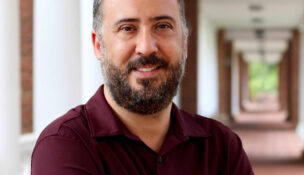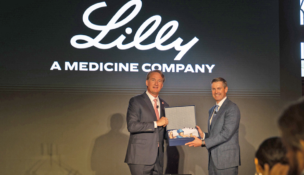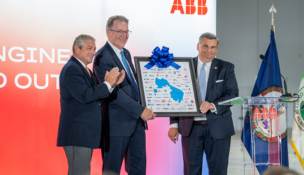Chesterfield approves fusion power plant permit
Project aims to be world's first grid-scale commercial fusion power plant

A rendering of Commonwealth Fusion Systems' planned facility in Chesterfield County. Image courtesy CFS.

A rendering of Commonwealth Fusion Systems' planned facility in Chesterfield County. Image courtesy CFS.
Chesterfield approves fusion power plant permit
Project aims to be world's first grid-scale commercial fusion power plant
Commonwealth Fusion Systems received the zoning approval needed for its planned Chesterfield County facility that’s expected to be the world’s first grid-scale commercial nuclear fusion power plant.
The Chesterfield County Board of Supervisors unanimously approved on Wednesday a conditional-use permit for a fusion facility at a 94-acre site in the James River Industrial Center.
The Massachusetts-based fusion energy company announced in December 2024 its plans to build the 400-megawatt facility, dubbed ARC, in Chesterfield. The power plant will likely cost more than $2.5 billion, according to Chesterfield’s economic development director, Garrett Hart.
CFS filed its application for a conditional-use permit with the county in May, and the county’s planning commission unanimously recommended approving the permit in August.
The final site design, however, is ongoing, said Ann Neil Cosby, a land-use attorney representing CFS, and will still have to be submitted for review in the county’s site plan process.
CFS plans to begin construction in the late 2020s and expects ARC to begin generating carbon-free power for the grid in the early 2030s.
The site is expected to have a power building, ancillary industrial buildings — an administration building, a maintenance facility, above-ground structures like tower and storage tanks, and an overhead power line and switchyard to interconnect to Dominion Energy facilities — as well as parking and landscaping.
ARC will connect to Dominion’s facilities to the south of the plant via power lines, Cosby said in the board of supervisors meeting.
The project will be located at 1201 Battery Brooke Parkway in the James River Industrial Center, a site owned by Dominion Energy. CFS has signed an option-to-lease agreement for the site, according to CFS spokesperson Christine Dunn.
Google signed an agreement, announced in the summer, to buy electricity from CFS’ Chesterfield facility, making it CFS’ first customer. The tech giant, which has been an investor in the nuclear fusion company since 2021, was also increasing its stake in CFS, although the companies did not disclose financial terms.
In late August, Gov. Glenn Youngkin announced that Google plans to invest an additional $9 billion in Virginia through the end of 2026, with much of that funding going toward the development of a new data center in Chesterfield, near Meadowville Technology Park.
Spun out of MIT in 2018, CFS is one of more than 40 companies currently pursuing fusion technologies and says it is the largest private fusion company in the world. In addition to Google, its high-profile investors include Jeff Bezos, Bill Gates, Tiger Global Management, Khosla Ventures and Lowercarbon Capital. CFS announced in late August it had raised $863 million in a Series B2 funding round, bringing its total funding raised close to $3 billion.
The company is building a fusion demonstration machine, nicknamed SPARC, at its headquarters in Devens, Massachusetts. CFS began assembling the machine’s tokamak — a fusion device that uses electromagnets to create the right conditions for fusion energy — in March.
ARC will use magnetic fields for the fusion process. In the process, two forms of hydrogen — deuterium and tritium — fuse, creating helium and releasing neutrons. A “molten salt liquid ‘blanket’ surrounding the plasma will capture the energy of the neutrons in the form of heat,” according to CFS’ zoning application. The molten salt then circulates through heat exchangers — systems that transfer heat between fluids — to produce steam, which turns a turbine connected to an electricity generator.
During the public comment period of Wednesday’s meeting, two residents spoke in opposition, citing concerns about fusion technology’s feasibility and what would happen to the site if the technology isn’t developed. Three other speakers, though, including the president and CEO of the Chesterfield Chamber of Commerce, spoke in support of the facility.
The second speaker, Jerry Turner, mentioned concerns about how much water from the county the facility could require for cooling.
A supervisor later posed that question to Benjamin Byboth, CFS’ director of business development and strategy, who said ARC would require 400,000 gallons of water a day.
Karen Webb, the Chesterfield chamber’s president and CEO, said Wednesday: “The chamber supports CFS and their decision to develop the ARC fusion power plant in Chesterfield County. This project reflects innovation, community partnerships, business partnerships and a cleaner future for us all, so we do say, ‘Yes, we support it.’”
The only downside to approving the facility, said Board of Supervisors Chair Jim Ingle, whose district includes the ARC site, is, “We went out and told the world we’re going to do it first. If it doesn’t happen here first, we get a little egg on our face.
“But when it’s done, and it works, doesn’t matter if we’re first or second or third,” he added. “It matters that we have an energy source that brings the source of the energy of the stars to the Earth. That’s pretty powerful.”
T

















